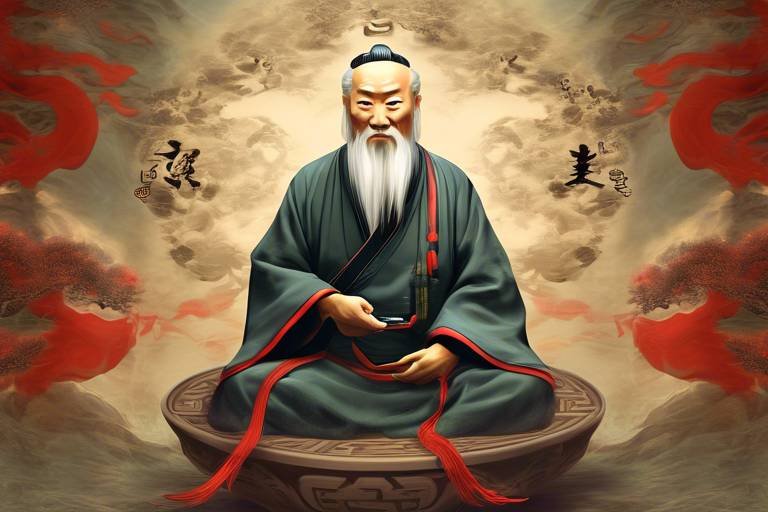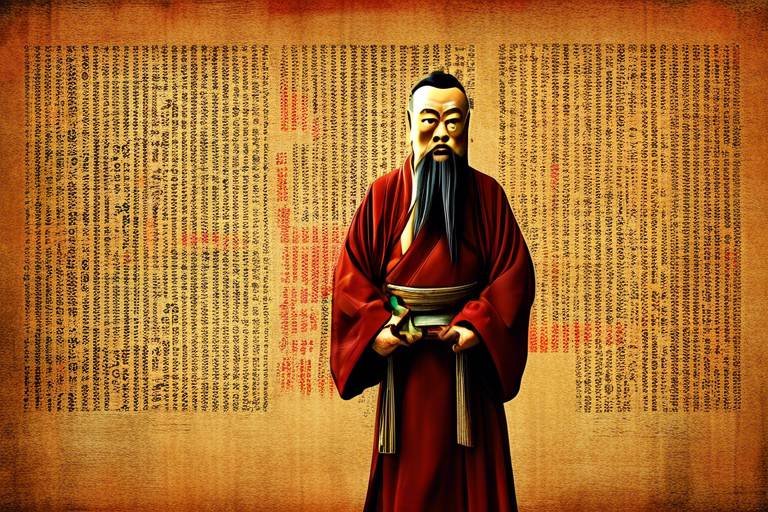The Central Ideals of Philosophical Taoism in Laozi's Daodejing
Taoism, one of the most profound and ancient philosophies, finds its roots in the teachings of Laozi, particularly in his seminal work, the Daodejing. This text is not just a book; it’s a treasure trove of wisdom, offering insights into the nature of existence and the universe. At its core, Taoism emphasizes the importance of living in harmony with the natural world, advocating for a lifestyle that is simple, balanced, and deeply connected to the flow of life. The Tao, often translated as “the Way,” serves as the guiding principle that shapes the universe and everything within it. By understanding the Tao, one can navigate life's complexities with grace and ease.
The Daodejing presents a unique perspective on life, urging individuals to reflect on their actions and their place in the cosmos. It invites us to ponder questions like: What does it mean to live in harmony? How can we align ourselves with the natural rhythms of the world? Through its poetic verses, the text encourages us to embrace simplicity and humility, suggesting that true strength lies not in forcefulness, but in a gentle approach to life. By cultivating a mindset that values peace and contentment, we can foster a deeper connection with ourselves and the universe.
One of the most captivating aspects of Laozi's philosophy is the idea of interconnectedness. The Daodejing teaches that all beings are linked in a vast web of existence, and recognizing this relationship fosters compassion and respect for others. It’s a beautiful reminder that our actions ripple through the fabric of the universe, affecting not just ourselves but the world around us. This interconnectedness encourages a sense of responsibility, urging us to act with mindfulness and care.
In essence, the central ideals of Taoism as presented in the Daodejing invite us to embark on a journey of self-discovery and enlightenment. By embracing the principles of the Tao, practicing wuwei (non-action), and acknowledging the dualities of life through yin and yang, we can cultivate a life that is not only fulfilling but also in harmony with the universe. This ancient wisdom remains relevant today, guiding us toward a balanced and harmonious existence.
- What is the main message of the Daodejing? The main message revolves around living in harmony with the Tao, embracing simplicity, and understanding the interconnectedness of all beings.
- How can I apply Taoist principles in my daily life? You can apply Taoist principles by practicing mindfulness, simplifying your lifestyle, and embracing change and impermanence.
- What does Wu Wei mean? Wu Wei translates to "non-action," advocating for effortless action that aligns with the natural flow of the universe.
- Why is humility important in Taoism? Humility is seen as a virtue that promotes gentleness and modesty, allowing individuals to achieve greater wisdom and harmony.
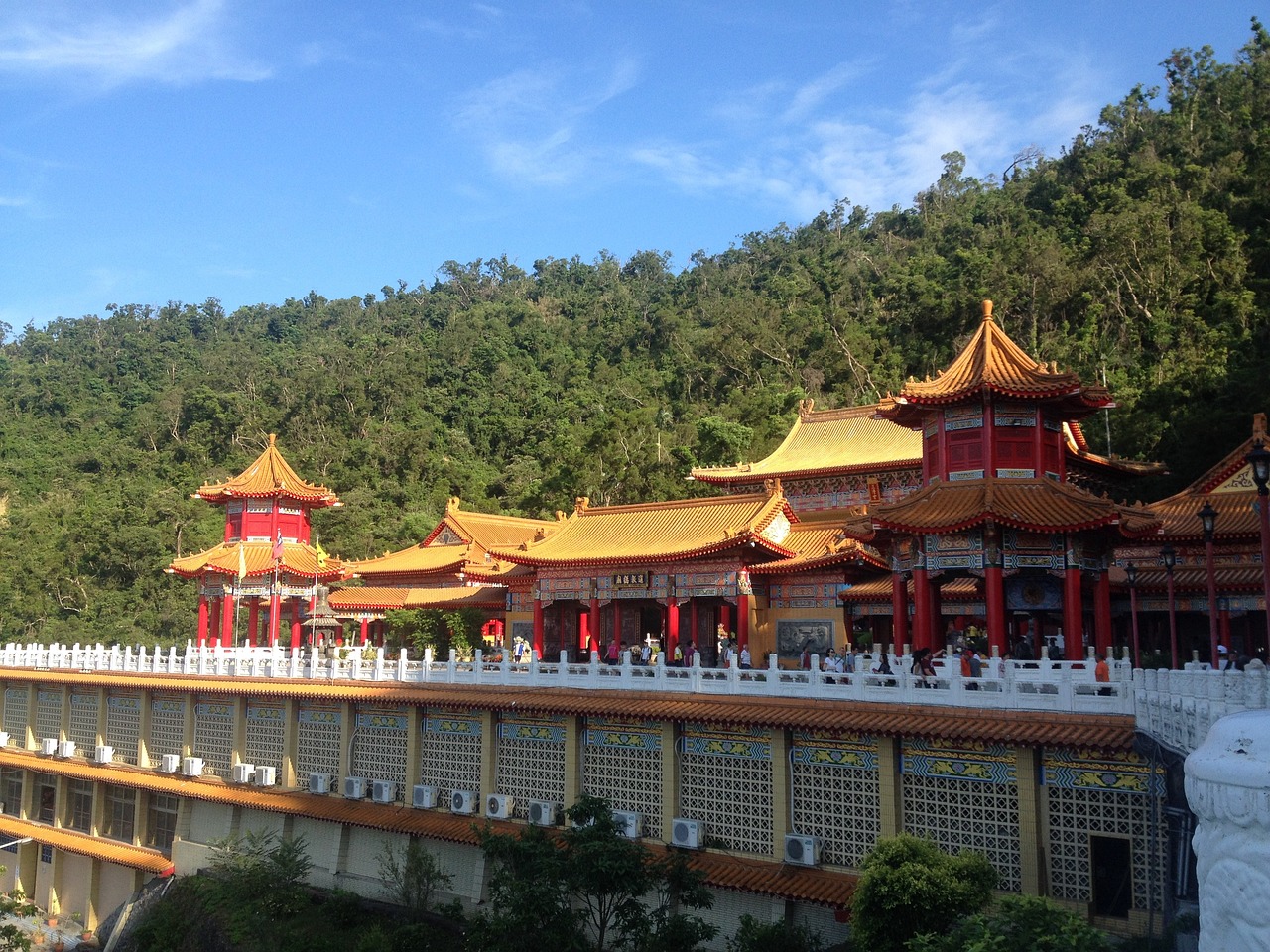
The Concept of the Tao
The Tao, often translated as "the Way," is the cornerstone of Taoism and serves as the ultimate principle that underlies and unites all things in the universe. Imagine the Tao as the invisible thread that weaves through the fabric of existence, connecting everything from the smallest pebble to the vastness of the cosmos. It’s a concept that transcends mere definition; it embodies the essence of life itself. To truly grasp the teachings of Laozi, one must first delve into this profound idea of the Tao, which is both a path and a principle guiding us toward a harmonious existence.
In the Daodejing, Laozi describes the Tao as something that cannot be fully articulated or understood through conventional means. It’s like trying to explain the taste of a fruit to someone who has never tasted it. Instead, the Tao is experienced and felt, urging us to look beyond the surface of things. It teaches us that life is a journey of exploration where understanding comes not from rigid doctrines but from embracing the natural flow of life. The Tao is often depicted as a river, effortlessly carving its path through the landscape, adapting to the contours of the earth while maintaining its essence.
Understanding the Tao invites us to reflect on our own lives. Are we flowing with the current, or are we resisting it? This question is crucial because it highlights the importance of aligning ourselves with the natural order of things. When we live in accordance with the Tao, we cultivate a sense of peace and balance, allowing us to navigate life’s challenges with grace. Laozi emphasizes that the Tao is not just an abstract concept; it is profoundly practical. By recognizing and honoring the Tao in our lives, we can foster a deeper connection with ourselves and the world around us.
The beauty of the Tao lies in its simplicity. It encourages us to strip away the complexities and distractions of modern life, urging us to return to a state of simplicity and authenticity. Laozi famously states, “The journey of a thousand miles begins with a single step.” This highlights that understanding the Tao is not about grand gestures but rather about small, mindful actions that align with our true nature. In this way, the Tao becomes a guide, leading us toward a more fulfilling and harmonious existence.
In summary, the concept of the Tao in Laozi's Daodejing is a profound exploration of the ultimate principle that governs all existence. It invites us to experience life more fully, to embrace simplicity, and to align ourselves with the natural rhythms of the universe. By understanding the Tao, we embark on a journey that not only enriches our lives but also fosters a deeper connection with the world around us.

the Way,
This article explores the fundamental concepts of Taoism as presented in Laozi's Daodejing, emphasizing harmony, simplicity, and the nature of existence in the pursuit of a balanced life.
The Tao, or the Way, is the central idea in Taoism, representing the ultimate principle that underlies and unites all things. Imagine the Tao as a river, flowing effortlessly and continuously, shaping the landscape around it without force. Understanding the Tao is pivotal for comprehending Laozi's teachings, as it serves as the foundation from which all other principles emerge. The Tao is not merely a concept; it is a living, breathing essence that connects every aspect of existence. In the Daodejing, Laozi describes the Tao as something that cannot be fully expressed in words, emphasizing its ineffable nature. This is akin to trying to describe the taste of water; it’s something you must experience to truly understand.
To grasp the essence of the Tao, one must consider its characteristics:
- Unity: The Tao signifies the interconnectedness of all things, suggesting that everything in the universe is part of a greater whole.
- Natural Order: It represents the natural flow of life, encouraging individuals to align their actions with the rhythms of nature.
- Non-Duality: The Tao transcends opposites, embodying the principle that all dualities are interconnected and interdependent.
In the pursuit of understanding the Tao, one might ask, "How can I align myself with this principle?" The answer lies in observing and respecting the natural world. Just as a tree grows towards the sun, we too must seek to grow in harmony with our environment. By recognizing the patterns and cycles of life, we can learn to navigate our paths with greater ease and joy.
Wu Wei, or non-action, is a key concept in the Daodejing, advocating for effortless action in alignment with the natural flow of the universe. This principle encourages living in harmony rather than striving against nature.
Laozi emphasizes the importance of simplicity and naturalism in life. By embracing a simple lifestyle, individuals can cultivate peace and contentment, aligning themselves with the rhythms of the natural world.
Yin and Yang represent the duality of existence in Taoism, illustrating how opposites are interconnected and interdependent. This balance is essential for understanding the dynamic nature of reality as explained in the Daodejing.
Humility is a significant virtue in Laozi's philosophy, promoting the idea that true strength lies in gentleness and modesty. By practicing humility, individuals can achieve greater wisdom and harmony in their lives.
Laozi teaches that change is an inherent aspect of life. Embracing impermanence allows individuals to adapt and find peace within the constant flux of existence, reflecting the Taoist perspective on life.
The Daodejing highlights the interconnectedness of all beings, suggesting that understanding this relationship fosters compassion and respect for others. This ideal encourages a sense of unity and responsibility towards the world.
The teachings of Laozi can be applied in everyday life, offering guidance on achieving balance, reducing stress, and fostering a deeper connection with oneself and the environment. Practical Taoist practices enhance well-being and mindfulness.
Q: What is the Tao?
A: The Tao, or the Way, is the fundamental principle of Taoism that represents the natural order and unity of all things.
Q: How can I practice Wu Wei in my life?
A: Practicing Wu Wei involves aligning your actions with the natural flow of life, allowing things to unfold naturally rather than forcing outcomes.
Q: Why is humility important in Taoism?
A: Humility is valued in Taoism because it fosters gentleness and openness, leading to greater wisdom and harmony in life.
Q: How does Taoism view change?
A: Taoism embraces change as an inherent aspect of life, encouraging individuals to adapt and find peace in the constant flux of existence.
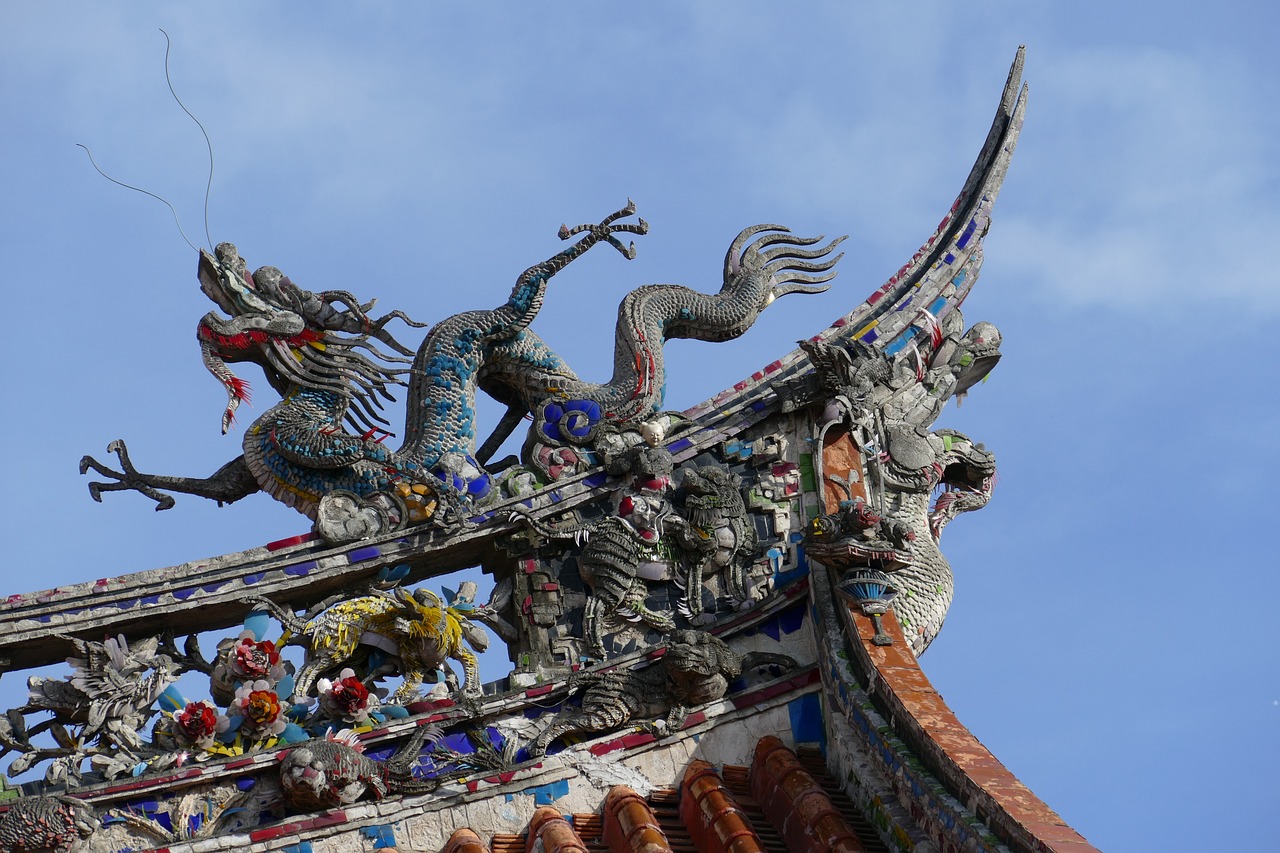
is the central idea in Taoism, representing the ultimate principle that underlies and unites all things. Understanding the Tao is pivotal for comprehending Laozi's teachings.
This article explores the fundamental concepts of Taoism as presented in Laozi's Daodejing, emphasizing harmony, simplicity, and the nature of existence in the pursuit of a balanced life.
The Tao, or the Way, is the central idea in Taoism, representing the ultimate principle that underlies and unites all things. Imagine the Tao as a vast river, flowing effortlessly and nourishing everything in its path. It encompasses the essence of the universe, the source of all creation, and the ultimate reality that connects all beings. Understanding the Tao is pivotal for comprehending Laozi's teachings, as it serves as the foundation for all his philosophical insights. Laozi invites us to consider the Tao not just as a concept, but as a living, breathing force that guides our existence. This idea encourages us to look beyond the surface of life and recognize the deeper currents that shape our experiences.
In the Daodejing, Laozi describes the Tao in paradoxical terms, illustrating its elusive nature. For instance, he states, "The Tao that can be told is not the eternal Tao." This statement highlights that while we can discuss the Tao, its true essence transcends words and definitions. To truly grasp the Tao, one must engage in a personal journey of exploration and reflection. It's about experiencing life in its fullness and recognizing the interconnectedness of all things.
Moreover, the concept of the Tao emphasizes a sense of harmony with the natural world. Just as a tree grows towards the sun, we are encouraged to align ourselves with the rhythms of nature. This alignment fosters a sense of peace and balance, as we learn to flow with life's changes rather than resist them. By understanding the Tao, we gain insight into our place in the universe and the natural order of things.
To further illustrate the significance of the Tao, consider the following table that summarizes its core attributes:
| Attribute | Description |
|---|---|
| Unity | The Tao represents the interconnectedness of all things. |
| Flow | It encourages us to move with the natural currents of life. |
| Balance | The Tao embodies the harmony between opposites. |
| Transcendence | It goes beyond the physical realm, representing a deeper reality. |
By embracing the Tao, individuals can cultivate a sense of inner peace and clarity. Laozi's teachings encourage us to let go of rigid expectations and to trust in the natural unfolding of life. This approach invites us to be present, to appreciate the beauty of each moment, and to find joy in the simplicity of existence. In essence, understanding the Tao is not merely an intellectual exercise; it is a transformative journey that leads to a more harmonious and fulfilling life.
Wu Wei, or non-action, is a key concept in the Daodejing, advocating for effortless action in alignment with the natural flow of the universe. This principle encourages living in harmony rather than striving against nature.
Laozi emphasizes the importance of simplicity and naturalism in life. By embracing a simple lifestyle, individuals can cultivate peace and contentment, aligning themselves with the rhythms of the natural world.
Yin and Yang represent the duality of existence in Taoism, illustrating how opposites are interconnected and interdependent. This balance is essential for understanding the dynamic nature of reality as explained in the Daodejing.
Humility is a significant virtue in Laozi's philosophy, promoting the idea that true strength lies in gentleness and modesty. By practicing humility, individuals can achieve greater wisdom and harmony in their lives.
Laozi teaches that change is an inherent aspect of life. Embracing impermanence allows individuals to adapt and find peace within the constant flux of existence, reflecting the Taoist perspective on life.
The Daodejing highlights the interconnectedness of all beings, suggesting that understanding this relationship fosters compassion and respect for others. This ideal encourages a sense of unity and responsibility towards the world.
The teachings of Laozi can be applied in everyday life, offering guidance on achieving balance, reducing stress, and fostering a deeper connection with oneself and the environment. Practical Taoist practices enhance well-being and mindfulness.
- What is the Tao? The Tao is the fundamental principle in Taoism, representing the way of the universe and all existence.
- How can I practice Wu Wei in my life? Wu Wei can be practiced by letting go of the need to control everything and instead flowing with life's natural rhythms.
- What is the significance of Yin and Yang? Yin and Yang illustrate the balance of opposites in the universe, showing how they are interconnected and essential for harmony.
- How does humility play a role in Taoism? Humility is seen as a strength in Taoism, promoting gentleness and wisdom as pathways to harmony.
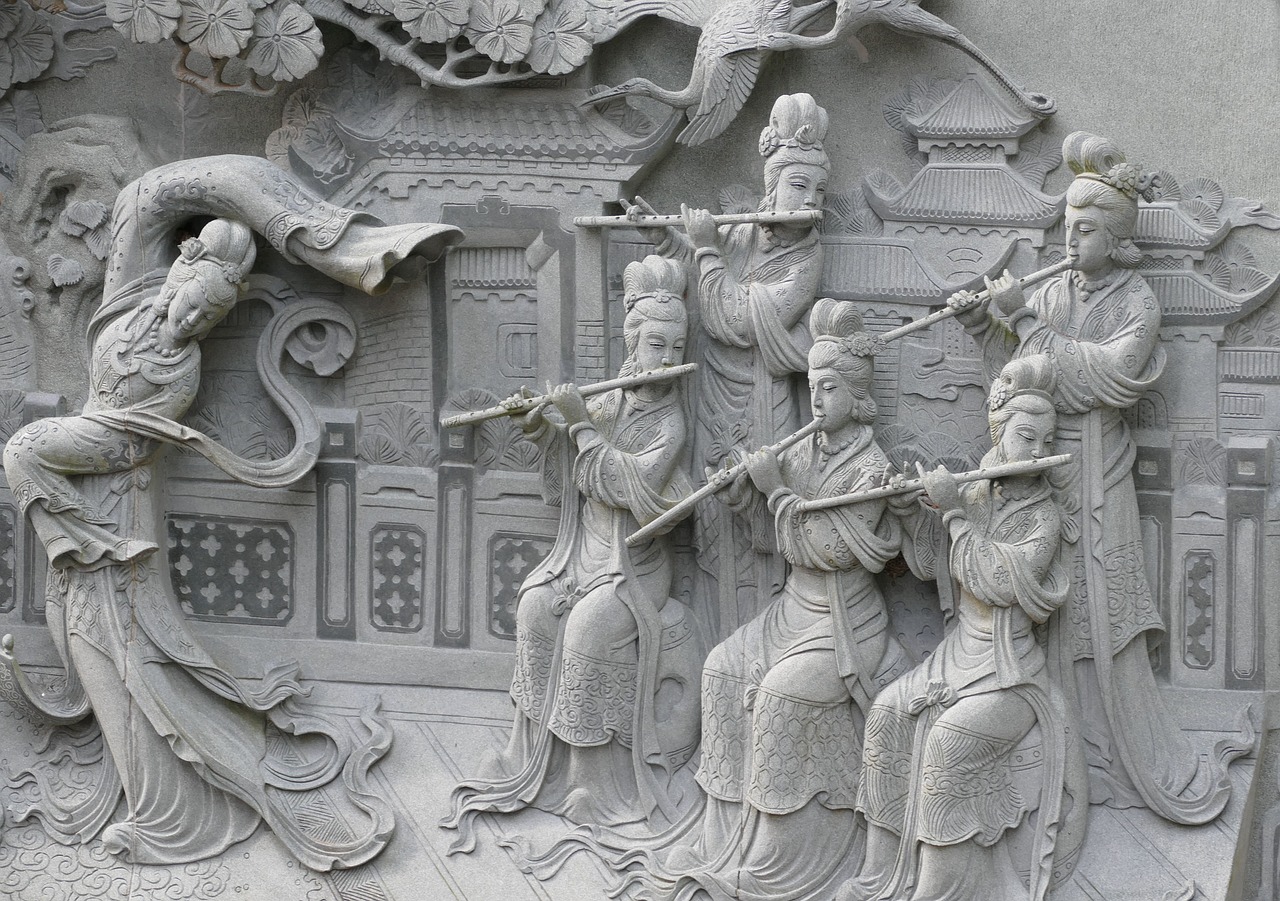
Wu Wei: The Principle of Non-Action
The concept of Wu Wei, often translated as "non-action" or "effortless action," is a cornerstone of Taoist philosophy as articulated in the Daodejing. At first glance, the idea of non-action might seem paradoxical or even counterintuitive. How can doing nothing lead to meaningful outcomes? This is where the beauty of Wu Wei comes into play. It’s not about being inactive; rather, it’s about aligning oneself with the natural rhythms of the universe and allowing events to unfold without forceful intervention. Imagine a river flowing effortlessly around rocks and bends—this is the essence of Wu Wei.
In our fast-paced modern world, we often feel pressured to constantly strive, push, and achieve. Yet, Laozi teaches us that sometimes the most powerful action is to step back and allow life to take its course. By embracing Wu Wei, individuals can experience a profound sense of peace and clarity. It encourages us to trust in the natural order of things, fostering a mindset where we can respond to situations rather than react impulsively. This principle can lead to more authentic and effective outcomes, as we are not fighting against the current but rather moving with it.
To further illustrate the principle of Wu Wei, consider the following aspects:
- Effortless Action: Engaging in activities that feel natural and unforced, leading to a state of flow.
- Harmony with Nature: Understanding and respecting the natural processes around us, allowing us to find balance.
- Letting Go of Control: Releasing the need to control every outcome, which can often lead to stress and frustration.
In practice, adopting Wu Wei can transform how we approach daily challenges. For instance, when faced with a difficult decision, instead of forcing a solution, we might take a step back, reflect, and allow clarity to emerge naturally. This doesn’t mean we become passive; rather, we become more attuned to the subtle cues and opportunities that life presents. Just like a skilled martial artist who flows with their opponent's movements rather than resisting them, we learn to navigate life's complexities with grace and ease.
Ultimately, Wu Wei teaches us that sometimes, the best way to achieve our goals is not through relentless effort, but through a deep understanding of ourselves and the world around us. By embracing this principle, we can cultivate a life that feels more effortless, harmonious, and fulfilling. It’s a gentle reminder that we are part of a larger tapestry, and by aligning ourselves with the Tao, we can find our place within it.
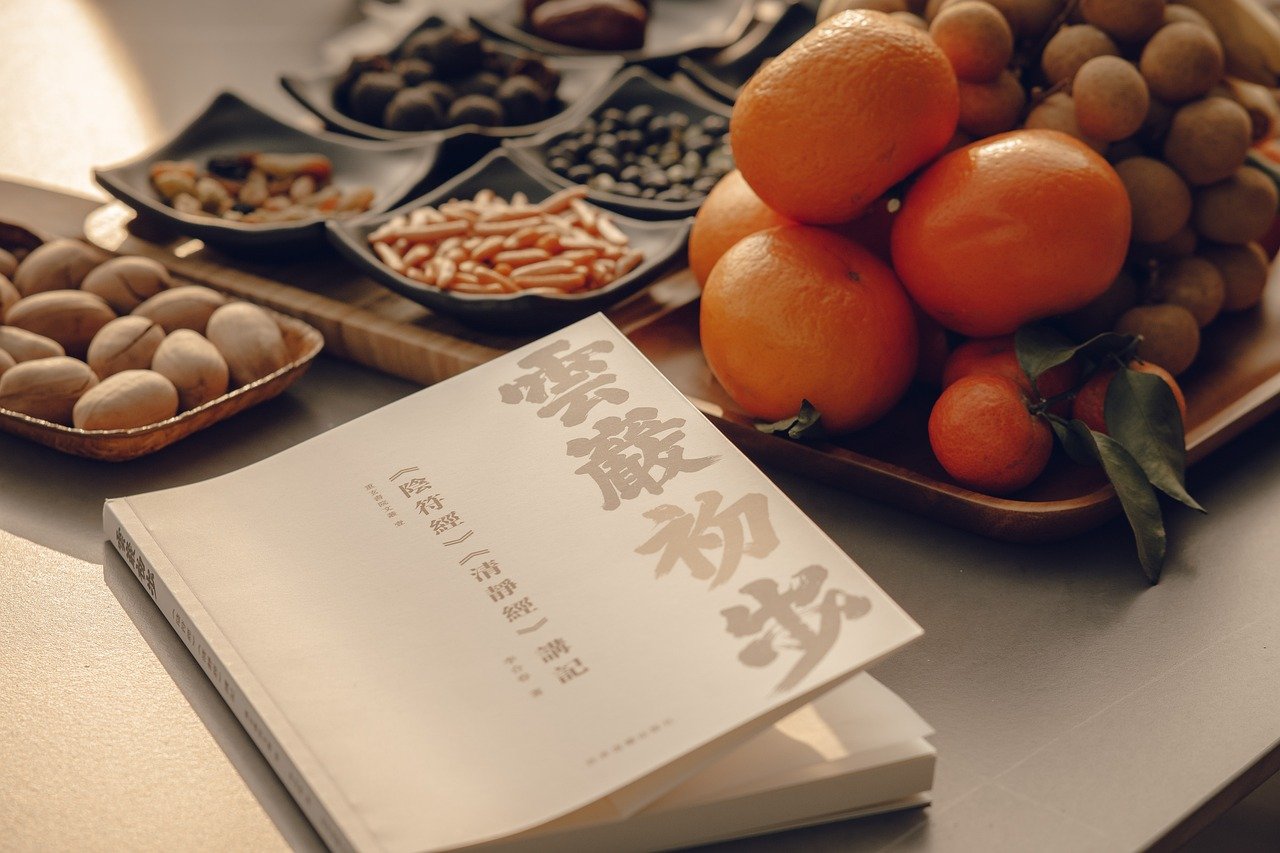
non-action,
This article explores the fundamental concepts of Taoism as presented in Laozi's Daodejing, emphasizing harmony, simplicity, and the nature of existence in the pursuit of a balanced life.
The Tao, or the Way, is the central idea in Taoism, representing the ultimate principle that underlies and unites all things. Understanding the Tao is pivotal for comprehending Laozi's teachings.
Wu Wei, or non-action, is a key concept in the Daodejing, advocating for effortless action in alignment with the natural flow of the universe. Imagine trying to swim upstream against a powerful current; it’s exhausting, isn’t it? Now, picture floating downstream instead. That’s what Wu Wei is all about—going with the flow rather than fighting against it. It’s about recognizing that sometimes, the best course of action is to step back and allow things to unfold naturally.
This principle encourages living in harmony with the world around us. In our fast-paced lives, we often feel the pressure to act decisively and aggressively to achieve our goals. Yet, Laozi teaches that true strength lies in gentleness and patience. By practicing Wu Wei, we learn to trust the process, which can lead to unexpected opportunities and outcomes. It’s like planting a seed; you can’t rush its growth. You must nurture it and give it time to flourish.
Moreover, Wu Wei doesn’t mean complete inaction. It’s about taking action that is spontaneous and unforced. When we align our actions with the natural rhythms of life, we find that things tend to work out more smoothly. Here are some ways to embody Wu Wei in daily life:
- Listen to Your Intuition: Pay attention to your gut feelings and instincts.
- Practice Mindfulness: Stay present in the moment and respond to situations as they arise.
- Let Go of Control: Accept that not everything is within your control and trust the process.
In essence, embracing Wu Wei can lead to a more peaceful and balanced existence. It allows us to navigate life’s challenges with grace, reducing stress and fostering a sense of tranquility. By understanding that action doesn’t always mean force, we can cultivate a deeper connection with ourselves and the world around us.
Laozi emphasizes the importance of simplicity and naturalism in life. By embracing a simple lifestyle, individuals can cultivate peace and contentment, aligning themselves with the rhythms of the natural world.
Yin and Yang represent the duality of existence in Taoism, illustrating how opposites are interconnected and interdependent. This balance is essential for understanding the dynamic nature of reality as explained in the Daodejing.
Humility is a significant virtue in Laozi's philosophy, promoting the idea that true strength lies in gentleness and modesty. By practicing humility, individuals can achieve greater wisdom and harmony in their lives.
Laozi teaches that change is an inherent aspect of life. Embracing impermanence allows individuals to adapt and find peace within the constant flux of existence, reflecting the Taoist perspective on life.
The Daodejing highlights the interconnectedness of all beings, suggesting that understanding this relationship fosters compassion and respect for others. This ideal encourages a sense of unity and responsibility towards the world.
The teachings of Laozi can be applied in everyday life, offering guidance on achieving balance, reducing stress, and fostering a deeper connection with oneself and the environment. Practical Taoist practices enhance well-being and mindfulness.
- What is Wu Wei? Wu Wei is the principle of non-action in Taoism, encouraging individuals to align their actions with the natural flow of the universe.
- How can I practice Wu Wei in my daily life? You can practice Wu Wei by listening to your intuition, being mindful, and letting go of the need to control every situation.
- Why is simplicity important in Taoism? Simplicity allows individuals to cultivate peace and contentment, aligning themselves with the natural world.
- What is the significance of Yin and Yang? Yin and Yang represent the interconnectedness of opposites, illustrating the balance necessary for understanding reality.

is a key concept in the Daodejing, advocating for effortless action in alignment with the natural flow of the universe. This principle encourages living in harmony rather than striving against nature.
This article explores the fundamental concepts of Taoism as presented in Laozi's Daodejing, emphasizing harmony, simplicity, and the nature of existence in the pursuit of a balanced life.
The Tao, or the Way, is the central idea in Taoism, representing the ultimate principle that underlies and unites all things. Understanding the Tao is pivotal for comprehending Laozi's teachings.
Wu Wei, or non-action, is a key concept in the Daodejing, advocating for effortless action in alignment with the natural flow of the universe. Imagine trying to swim upstream against a powerful current; it’s exhausting and often futile. Now, picture instead floating downstream, allowing the water to guide you. This metaphor beautifully encapsulates the essence of Wu Wei. It encourages us to live in harmony with our surroundings rather than constantly battling against them.
In a world that often glorifies hustle and relentless effort, the idea of non-action can seem counterintuitive. However, Wu Wei doesn't mean doing nothing; rather, it suggests a state of being where actions arise spontaneously from a place of tranquility and understanding. When we embrace this principle, we begin to notice that life flows more smoothly. For instance:
- When faced with challenges, instead of forcing solutions, we can step back and allow answers to emerge naturally.
- In relationships, rather than trying to control outcomes, we can foster connections by being present and open.
- In our personal growth, we can cultivate patience, trusting that progress will come in its own time.
Essentially, Wu Wei teaches us to align ourselves with the rhythms of the universe. This means recognizing the natural order of things and moving with it, rather than against it. Laozi beautifully illustrates this concept through various examples in the Daodejing, where he often compares human behavior to that of nature. Just as a river flows effortlessly around obstacles, we too can learn to navigate life’s challenges with grace and ease.
Moreover, Wu Wei encourages us to cultivate a sense of awareness and mindfulness. By being attuned to our environment and our inner selves, we can respond to situations with clarity and purpose. This practice of non-action is not about passivity; it’s about being actively engaged in the moment without forcing outcomes. It’s akin to a dancer moving fluidly across the stage, responding to the music rather than trying to choreograph every step. The beauty of Wu Wei lies in its simplicity—by letting go of the need to control, we often find that things unfold more beautifully than we could have imagined.
Laozi emphasizes the importance of simplicity and naturalism in life. By embracing a simple lifestyle, individuals can cultivate peace and contentment, aligning themselves with the rhythms of the natural world.
Yin and Yang represent the duality of existence in Taoism, illustrating how opposites are interconnected and interdependent. This balance is essential for understanding the dynamic nature of reality as explained in the Daodejing.
Humility is a significant virtue in Laozi's philosophy, promoting the idea that true strength lies in gentleness and modesty. By practicing humility, individuals can achieve greater wisdom and harmony in their lives.
Laozi teaches that change is an inherent aspect of life. Embracing impermanence allows individuals to adapt and find peace within the constant flux of existence, reflecting the Taoist perspective on life.
The Daodejing highlights the interconnectedness of all beings, suggesting that understanding this relationship fosters compassion and respect for others. This ideal encourages a sense of unity and responsibility towards the world.
The teachings of Laozi can be applied in everyday life, offering guidance on achieving balance, reducing stress, and fostering a deeper connection with oneself and the environment. Practical Taoist practices enhance well-being and mindfulness.
- What is the main teaching of Taoism? Taoism teaches the importance of living in harmony with the Tao, or the natural order of the universe.
- How can Wu Wei be applied in daily life? Wu Wei can be applied by allowing situations to unfold naturally rather than forcing outcomes, enhancing peace and flow in everyday activities.
- What role does humility play in Taoism? Humility is seen as a strength in Taoism, allowing individuals to connect more deeply with others and the world around them.

Naturalism and Simplicity
In the teachings of Laozi, the principles of naturalism and simplicity are not just ideals; they are the very essence of a fulfilling life. Imagine for a moment a world where everything is in perfect harmony, where the chaos of modern life fades away, and the beauty of simplicity reigns. This is the vision that Laozi offers us through the Daodejing. He encourages us to strip away the complexities and distractions that cloud our minds and embrace a lifestyle that resonates with the natural world.
At its core, naturalism in Taoism emphasizes the importance of living in accordance with the rhythms of nature. This means recognizing that we are a part of the larger tapestry of existence, intricately woven into the fabric of the universe. When we align ourselves with these natural rhythms, we begin to experience a profound sense of peace and contentment. Laozi suggests that by observing nature—its cycles, its seasons, and its inherent simplicity—we can learn valuable lessons about how to navigate our own lives.
Simplicity, on the other hand, is about removing the unnecessary clutter from our lives. In a world that often glorifies complexity and excess, Laozi’s teachings serve as a refreshing reminder that less is more. By adopting a simple lifestyle, we open ourselves up to greater clarity and focus. This doesn’t mean we should deprive ourselves of joy or experiences; rather, it encourages us to find joy in the little things, to appreciate the mundane, and to cultivate a sense of gratitude for what we already have.
Consider the following ways that embracing naturalism and simplicity can enhance your life:
- Mindfulness: By simplifying our lives, we can become more present, allowing us to fully engage with our surroundings and experiences.
- Reduced Stress: A simpler life often leads to less stress. By letting go of unnecessary obligations and distractions, we create space for relaxation and peace.
- Connection to Nature: Spending time in nature can rejuvenate our spirits and remind us of the beauty that exists all around us.
- Enhanced Creativity: When our minds are free from clutter, we can think more clearly and creatively, allowing new ideas to flourish.
In conclusion, the teachings of Laozi on naturalism and simplicity invite us to reflect on our lifestyles and to consider how we can integrate these principles into our daily lives. By doing so, we not only honor the wisdom of the Daodejing but also pave the way for a more harmonious existence. So, the next time you feel overwhelmed by the complexities of modern life, take a step back, breathe, and remember the beauty of simplicity that lies in the heart of nature.
Q1: What is naturalism in Taoism?
A1: Naturalism in Taoism emphasizes living in harmony with the natural world and recognizing our interconnectedness with all beings. It encourages us to observe nature and learn from its cycles and rhythms.
Q2: How can I simplify my life?
A2: You can simplify your life by decluttering your space, reducing obligations, focusing on what truly matters, and cultivating gratitude for the present moment. Small changes can lead to a more fulfilling life.
Q3: What are the benefits of living simply?
A3: Living simply can lead to reduced stress, enhanced mindfulness, deeper connections with nature, and increased creativity. It allows us to appreciate the little things and find joy in everyday moments.

The Role of Yin and Yang
Yin and Yang are not just symbols; they are the very essence of existence in Taoism, representing the duality that permeates all aspects of life. Imagine a world where everything is in constant motion, where light and darkness dance together, creating a rhythm that defines our reality. In Laozi's Daodejing, this dynamic interplay is beautifully illustrated, emphasizing that opposites are not in conflict but rather interdependent forces that complement each other. Just like day turns into night, and summer gives way to winter, understanding Yin and Yang allows us to appreciate the balance in our lives.
At its core, Yin is often associated with qualities such as darkness, passivity, and femininity, while Yang embodies light, activity, and masculinity. This duality can be observed in countless aspects of our daily lives. For instance, consider the changing seasons: winter (Yin) brings a time for rest and reflection, while summer (Yang) encourages growth and activity. Each season has its purpose, and neither can exist without the other. This interplay reminds us that life is not about extremes but finding harmony within the contrasts.
In the Daodejing, Laozi encourages us to embrace the balance of Yin and Yang in our own lives. When we recognize that challenges (Yin) can lead to growth (Yang), we start to see the world through a Taoist lens. This perspective allows us to navigate life's ups and downs with grace and understanding. By acknowledging the presence of both energies, we become more adaptable, learning to flow with the currents of life rather than resisting them.
Furthermore, the concept of Yin and Yang extends beyond personal experiences; it encapsulates our relationships with others and the environment. When we understand that every action has a reaction, we become more mindful of our choices. For example, consider how kindness (Yang) can foster trust (Yin) in our relationships, creating a cycle of positivity. This interconnectedness reflects the Taoist belief that we are all part of a larger whole, where every being contributes to the balance of the universe.
To illustrate this further, let's look at a simple table that summarizes the attributes of Yin and Yang:
| Yin | Yang |
|---|---|
| Darkness | Light |
| Passive | Active |
| Cold | Hot |
| Feminine | Masculine |
| Rest | Movement |
In conclusion, embracing the role of Yin and Yang in our lives can lead to profound insights and a deeper understanding of our existence. By recognizing the interplay of these forces, we can cultivate a sense of balance, allowing us to navigate life's complexities with ease. So, the next time you find yourself facing a challenge, remember that within every obstacle lies an opportunity for growth. By embodying the principles of Yin and Yang, we can achieve a more harmonious existence, aligning ourselves with the natural flow of the universe.
- What is the significance of Yin and Yang in Taoism? Yin and Yang symbolize the duality of existence, representing how opposing forces are interconnected and interdependent, essential for achieving balance in life.
- How can I apply the concept of Yin and Yang in my daily life? You can apply these principles by recognizing and embracing the balance of opposites in your experiences, relationships, and choices, allowing for a more harmonious existence.
- Are Yin and Yang strictly related to gender roles? While Yin is often associated with femininity and Yang with masculinity, they represent broader qualities and energies that exist in all aspects of life, not limited to gender.

The Importance of Humility
Humility is not just a virtue; it is a profound principle that resonates deeply within Laozi's philosophy as presented in the Daodejing. In a world that often glorifies power and dominance, humility stands as a quiet strength, a gentle reminder that true greatness lies in modesty and self-awareness. When we think about humility, it’s like a soft breeze that calms the stormy seas of ego and pride. It teaches us that the tallest trees in the forest bend with the wind, and in doing so, they endure the test of time.
In Taoism, humility is viewed as a pathway to wisdom. When we cultivate a humble spirit, we open ourselves to learning and growth. Laozi suggests that those who are humble are more likely to listen, to observe, and to understand the world around them. This is vital because understanding leads to compassion, and compassion is the glue that holds our communities together. By practicing humility, we can:
- Enhance our relationships with others
- Foster a sense of community and interconnectedness
- Develop a deeper understanding of ourselves and our place in the universe
Moreover, humility encourages us to recognize and appreciate the contributions of others. It allows us to see that we are part of a larger tapestry of existence, where every thread is essential. Just as a single drop of water is insignificant on its own, together, they form the mighty ocean. Humility teaches us that while we may be just one individual, our actions can ripple outwards, affecting the lives of many.
Another important aspect of humility is its role in fostering resilience. In a society that often equates success with being the best, humility helps us accept our limitations. It reminds us that it’s okay to fail and that every setback is a stepping stone to growth. By embracing our vulnerabilities, we can bounce back stronger and wiser. This is akin to a bamboo that bends low under the weight of snow but springs back upright once the burden is lifted.
Ultimately, practicing humility allows us to live in harmony with the Tao. It aligns us with the natural flow of the universe, where the strongest forces are often the most gentle. In this way, humility is not a sign of weakness; rather, it is a powerful force that fosters peace and balance in our lives. As we navigate the complexities of existence, let us remember the wisdom of Laozi and strive to embody humility in our daily lives.
- What is humility in Taoism?
Humility in Taoism is the recognition of one’s place in the larger scheme of existence, promoting gentleness and modesty over pride and arrogance. - How can I practice humility?
You can practice humility by listening more, recognizing the contributions of others, and accepting your limitations without self-judgment. - Why is humility important for personal growth?
Humility opens the door to learning and growth, allowing individuals to embrace their vulnerabilities and learn from their experiences.
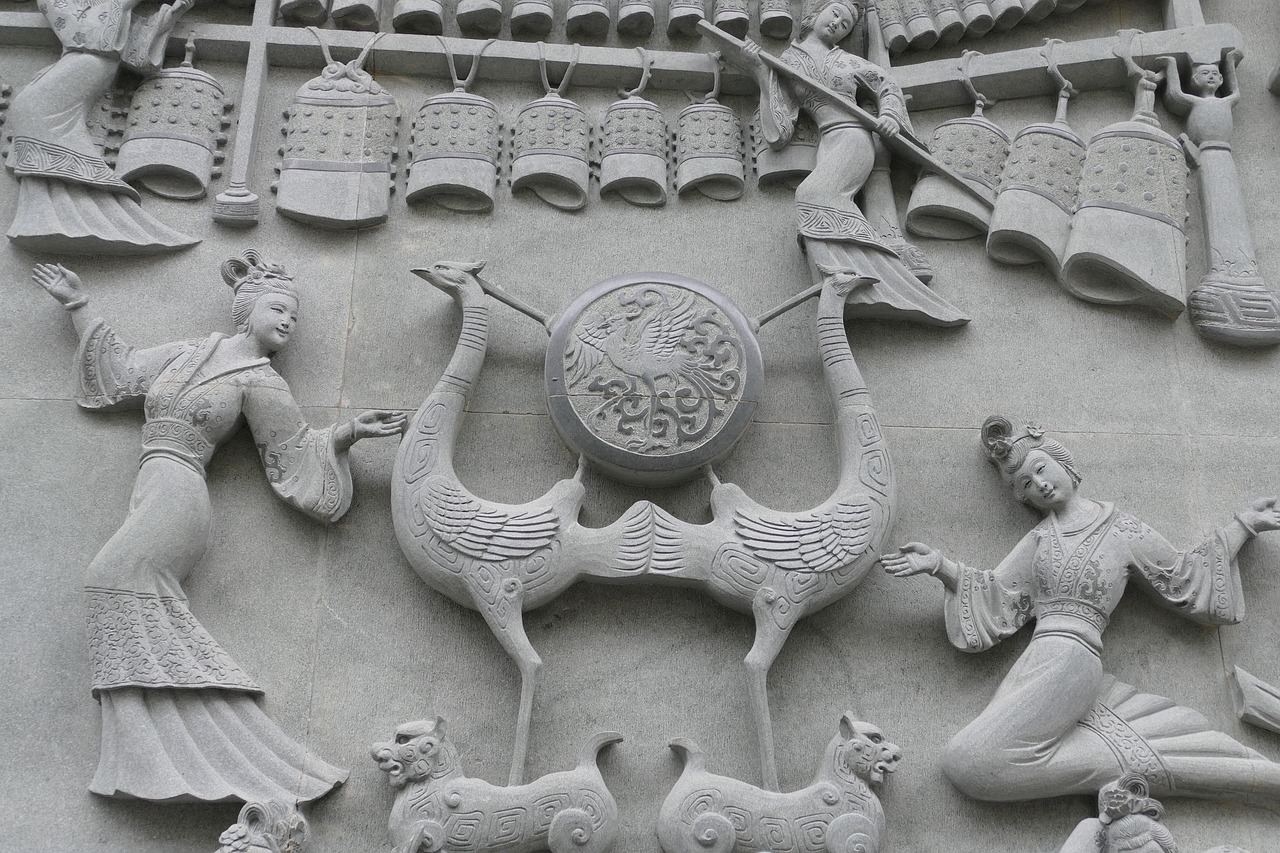
Embracing Change and Impermanence
Change is the only constant in life, and this profound truth is at the heart of Laozi's teachings in the Daodejing. Embracing change and impermanence is not just a philosophical stance but a practical approach to living a fulfilling life. Imagine trying to hold onto water with your bare hands; the more you squeeze, the faster it escapes. This analogy perfectly illustrates our futile attempts to resist change. Instead of fighting against the currents of life, Taoism encourages us to flow with them, adapting and evolving as circumstances shift.
The concept of impermanence is beautifully intertwined with the natural world. Just as the seasons change, so do our lives. Recognizing that everything is in a state of flux allows us to appreciate the beauty of each moment. In fact, Laozi suggests that by accepting the transient nature of existence, we can cultivate a deeper sense of peace and contentment. When we stop clinging to the past or worrying about the future, we free ourselves to fully experience the present.
But how do we practically apply this principle in our daily lives? Here are some key ideas:
- Practice Mindfulness: Being present in the moment helps us appreciate the now and reduces anxiety about what’s to come.
- Let Go of Attachments: Whether it's material possessions or relationships, learning to release our grip can lead to greater freedom.
- Adapt and Evolve: Embrace new experiences and challenges as opportunities for growth rather than obstacles.
By embracing change, we not only align ourselves with the Tao but also open ourselves to new possibilities. This acceptance fosters resilience, allowing us to bounce back from life's inevitable challenges. Just like a bamboo tree that bends with the wind yet remains standing, we too can learn to be flexible and strong.
Moreover, the recognition of impermanence fosters a sense of gratitude. When we understand that moments are fleeting, we begin to cherish them more deeply. This perspective shift is crucial in cultivating a positive outlook on life. Instead of viewing change as a threat, we can see it as a natural and essential part of our journey.
In conclusion, embracing change and impermanence is not merely a philosophical exercise; it is a way of life that can lead to profound transformation. By adopting this mindset, we can navigate the complexities of existence with grace and ease. As Laozi wisely notes, “The journey of a thousand miles begins with a single step.” So, let us take that step towards embracing the ever-changing tapestry of life.
- What is the significance of change in Taoism?
Change is viewed as a natural part of life in Taoism. Embracing change allows individuals to align with the Tao and live harmoniously. - How can I practice embracing impermanence?
Practicing mindfulness, letting go of attachments, and being open to new experiences are effective ways to embrace impermanence. - What are some benefits of accepting change?
Accepting change can lead to greater resilience, reduced anxiety, and an enhanced appreciation for the present moment.

Interconnectedness of All Beings
The concept of interconnectedness is a profound aspect of Laozi's teachings in the Daodejing. It emphasizes that every being, whether human, animal, or plant, is part of a vast, intricate web of existence. This idea is not just a philosophical notion; it's a call to recognize that our actions have repercussions that ripple through this interconnected fabric. When we harm one part of this web, we inadvertently affect others, creating a cycle of suffering and imbalance. Have you ever considered how a single act of kindness can create a chain reaction? This is the essence of interconnectedness.
In the natural world, we can observe this interconnectedness in various ways. For instance, consider the relationship between trees and the atmosphere. Trees absorb carbon dioxide and release oxygen, which is essential for our survival. This relationship illustrates the delicate balance that exists in nature, reminding us that everything is linked in some way. When we acknowledge these connections, we foster a sense of compassion and responsibility towards our environment and fellow beings.
Moreover, the Daodejing teaches that understanding our interconnectedness can lead to a deeper sense of unity and harmony. When we see ourselves as part of a larger whole, we begin to cultivate empathy and respect for others. This perspective encourages us to act with kindness and consideration, knowing that our well-being is intertwined with that of others. It is a gentle reminder that we are not isolated entities but rather threads woven into the rich tapestry of life.
To illustrate this concept further, let's consider a few examples of interconnectedness in our daily lives:
- Community Engagement: Participating in local events or volunteering can strengthen community bonds, enhancing the collective well-being.
- Environmental Stewardship: Taking care of our planet ensures that future generations can thrive, demonstrating our responsibility to the larger ecosystem.
- Personal Relationships: Nurturing our connections with friends and family creates a supportive network that benefits everyone involved.
Ultimately, recognizing the interconnectedness of all beings is not just a philosophical exercise; it's a practical approach to living a more harmonious life. By embracing this idea, we can contribute to a more compassionate world where every action is taken with mindfulness and intention. So, next time you find yourself in a situation where your actions could impact others, pause for a moment. Reflect on the larger picture and choose to act in a way that uplifts not just yourself but everyone around you.
Q: What does interconnectedness mean in Taoism?
A: In Taoism, interconnectedness refers to the idea that all beings and elements of the universe are linked, and our actions can affect the whole. Recognizing this connection fosters compassion and responsibility.
Q: How can I apply the principle of interconnectedness in my daily life?
A: You can apply this principle by being mindful of your actions and their impact on others, engaging in community activities, and practicing kindness towards all beings.
Q: Why is understanding interconnectedness important?
A: Understanding interconnectedness is important as it promotes empathy, encourages harmonious living, and helps us realize our role in the larger ecosystem, leading to a more balanced and fulfilling life.

Practical Applications of Taoism
Taoism, as presented in Laozi's Daodejing, isn't just a philosophical concept to ponder; it's a way of life that can be integrated into our daily routines. One of the most appealing aspects of Taoism is its practicality. It encourages us to live in a manner that aligns with the natural world, promoting a sense of balance and tranquility amidst our often chaotic lives. But how do we actually apply these ancient teachings in our modern context? Let's explore some practical ways to incorporate the principles of Taoism into our everyday lives.
First and foremost, the principle of wuwei, or "non-action," can be a transformative approach to handling stress and decision-making. Instead of forcing situations or striving against the current, we can learn to observe and respond to the natural flow of events. Imagine trying to swim upstream against a strong current; it’s exhausting and often futile. Instead, by allowing ourselves to float with the current, we can find a path that is less strenuous and more fulfilling. This doesn’t mean being passive; rather, it’s about being proactive in a way that feels effortless and organic.
Another practical application is embracing simplicity. In a world full of distractions and complexities, simplifying our lives can lead to profound peace. This might mean decluttering our physical spaces, prioritizing meaningful relationships, or even simplifying our daily routines. By focusing on what truly matters, we can cultivate a sense of contentment and clarity. For instance, consider the benefits of spending just a few minutes each day in quiet reflection or meditation. This practice not only aligns with Taoist principles but also enhances our overall well-being.
Moreover, understanding the interconnectedness of all beings can significantly impact how we interact with others. When we recognize that our actions affect the larger tapestry of life, we naturally cultivate compassion and empathy. This can manifest in small, everyday actions, such as being kinder to those around us or engaging in community service. By fostering connections and understanding our shared existence, we embody the essence of Taoism.
To further illustrate how these concepts can be applied, consider the following table that outlines some practical Taoist practices:
| Practice | Description |
|---|---|
| Meditation | A daily practice of stillness to connect with the Tao and cultivate inner peace. |
| Nature Walks | Spending time in nature to observe the rhythms of the natural world and reflect on their significance. |
| Mindful Eating | Being present during meals, appreciating the food, and recognizing its source. |
| Journaling | Writing down thoughts and feelings to connect deeper with oneself and the Tao. |
Incorporating these practices into your life can be a gradual process. Start small; perhaps begin with just a few minutes of meditation each day or take a walk in a nearby park. As you become more comfortable, you can expand these practices and explore how they resonate with you. Remember, the goal is not to adhere strictly to a set of rules but to find a path that feels right for you, embodying the essence of Taoism in your unique way.
Ultimately, the teachings of Laozi invite us to live authentically and harmoniously with ourselves and the universe. By applying these principles, we can navigate life’s challenges with grace and ease, embodying the true spirit of the Tao.
- What is the main goal of Taoism? The main goal of Taoism is to achieve harmony with the Tao, which is seen as the fundamental principle that underlies the universe.
- How can I start practicing Taoism? You can start practicing Taoism by incorporating mindfulness, meditation, and simplicity into your daily life.
- Is Taoism a religion? Taoism can be considered both a philosophy and a religion, depending on how individuals choose to interpret and practice its teachings.
- What is the significance of Yin and Yang in Taoism? Yin and Yang represent the duality of existence; they illustrate how opposites are interconnected and interdependent, essential for achieving balance.
Frequently Asked Questions
- What is the Tao in Taoism?
The Tao, often referred to as "the Way," is the fundamental principle that underlies everything in Taoism. It represents the natural order of the universe and serves as a guide for living in harmony with the world around us. Understanding the Tao is essential for grasping the teachings of Laozi in the Daodejing.
- What does Wu Wei mean?
Wu Wei translates to "non-action" or "effortless action." This principle encourages individuals to align their actions with the natural flow of the universe rather than forcing things to happen. By practicing Wu Wei, one can achieve harmony and balance in life, allowing events to unfold naturally.
- How does simplicity relate to Taoism?
Simplicity is a core value in Taoism. Laozi teaches that by embracing a simpler lifestyle, we can cultivate peace and contentment. This approach helps individuals connect with the natural rhythms of life, leading to a more fulfilling existence.
- What is the significance of Yin and Yang?
Yin and Yang symbolize the duality of existence in Taoism. They illustrate how opposing forces are interconnected and interdependent, creating a balance essential for understanding the dynamic nature of reality. This concept is vital in comprehending the teachings of the Daodejing.
- Why is humility important in Laozi's philosophy?
Humility is a significant virtue in Taoism, emphasizing that true strength lies in gentleness and modesty. By practicing humility, individuals can gain greater wisdom and harmony in their lives, fostering better relationships with others and the world around them.
- How does Taoism view change and impermanence?
Taoism acknowledges that change is a fundamental aspect of life. Laozi teaches that embracing impermanence allows individuals to adapt and find peace amidst the constant flux of existence. This perspective encourages a more resilient and accepting approach to life's challenges.
- What does the Daodejing say about interconnectedness?
The Daodejing highlights the interconnectedness of all beings, suggesting that understanding this relationship fosters compassion and respect for others. Recognizing our connection to the world encourages a sense of unity and responsibility, promoting a more harmonious existence.
- How can I apply Taoist principles in my daily life?
The teachings of Laozi can be incorporated into everyday life by focusing on achieving balance, reducing stress, and fostering a deeper connection with oneself and the environment. Practical Taoist practices, such as mindfulness and simplicity, enhance well-being and promote a more peaceful life.

